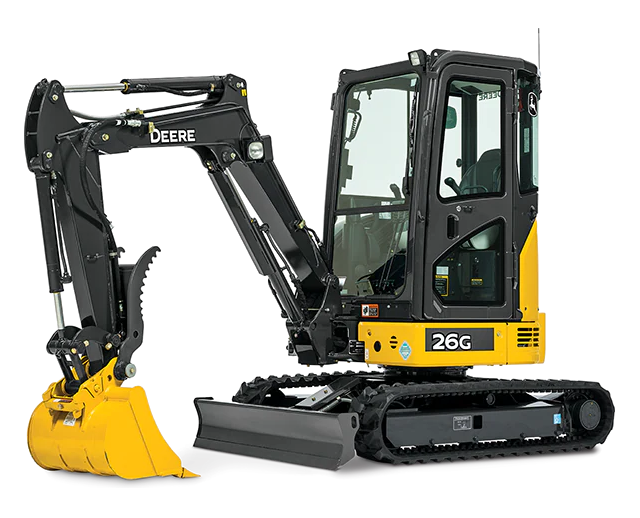Dozer Rental: Powerful Earthmoving Tools for Your Construction Needs
Dozer Rental: Powerful Earthmoving Tools for Your Construction Needs
Blog Article
Optimize Your Budget Plan by Understanding the Expenses Connected With Building Devices Services
Comprehending the complete extent of prices connected with construction tools leasings is important for maximizing your budget. What techniques can be employed to successfully manage these prices and guarantee a much more reliable rental experience?
Overview of Rental Costs
When considering building and construction equipment leasings, recognizing the connected costs is critical for reliable budgeting and task planning. Rental prices can vary considerably based upon a number of elements, including equipment type, period of service, and place. The first rental fee commonly shows the equipment's market need and its connected functional capabilities, influencing the overall expense.
In addition to the base rental price, secondary prices might develop, such as transport charges, gas additional charges, and upkeep costs. It is vital to account for these additional costs to precisely examine the overall cost of leasing devices. Furthermore, the rental duration can impact prices; longer leasings may get discounted rates, while short-term services could incur higher daily charges.

Break Down of Rental Prices
An extensive understanding of rental rates is important for service providers and project managers aiming to maximize their budget plans. Rental prices for building and construction tools commonly contain several components, including base rates, time-based costs, and use fees.
Base prices are the core charges connected with the rental of the devices, frequently established by the kind and dimension of the machinery. These rates can vary considerably, influenced by aspects such as devices need, accessibility, and regional market fads. Time-based costs, which may be daily, weekly, or monthly, offer to fit different task timelines and rental periods.
Furthermore, rental prices may include usage costs, which apply when equipment is made use of beyond a specified limit, making sure that the rental business can represent deterioration. Seasonal need changes can also influence rental prices, with peak building seasons normally commanding greater prices.
Additionally, comprehending the rental firm's plans regarding upkeep and insurance can supply additional insight right into the overall expense structure. By assessing these elements, service providers can make informed decisions, making sure the selection of rental tools lines up with both job demands and spending plan restrictions.
Added Charges to Consider
Understanding the intricacies of additional charges is critical for professionals to manage their general rental expenditures successfully. Beyond the basic rental prices, numerous supplemental costs can considerably influence the overall cost of equipment leasing. These charges typically include shipment and pickup charges, which can differ based upon range and logistics associated with delivering the equipment to and from the work website.
Furthermore, some rental companies might impose gas surcharges if the tools is returned with much less fuel than when rented. It is additionally necessary to know prospective cleansing charges, especially for specific devices that calls for thorough maintenance after use.

Extensively assessing the rental contract and making clear these added costs in advance can aid specialists avoid unforeseen expenses and make certain that budgets remain intact throughout the job lifecycle.
Upkeep and Repair Work Expenses
Regular repair and maintenance expenses are frequently forgotten variables that can substantially influence the total price of construction devices rentals. When renting out devices, it is critical to consider not just the rental charges however additionally the prospective expenses related to keeping the equipment in optimal operating condition.
Many rental firms consist of basic upkeep as part of the rental arrangement; nonetheless, more unanticipated breakdowns or substantial repair work can lead to added expenditures. It's necessary to review the rental heavy duty truck lift contract thoroughly to understand what maintenance services are covered and what responsibilities fall on the renter.
Additionally, tools that is not well-maintained can bring about inadequacies on the work site, possibly creating hold-ups and enhancing task prices. To mitigate these risks, it is a good idea to perform routine evaluations and preserve open interaction with the rental provider concerning any concerns that emerge during use.
Insurance Policy and Responsibility Prices
Insurance and obligation expenses are critical elements that can significantly impact the total cost of building equipment rentals (construction equipment rentals). These expenses make sure that both the rental business and the client are shielded from possible financial losses arising from accidents, damage, or burglary during the rental duration

In addition, clients must understand any deductibles or exclusions in the insurance coverage plan, as these can impact prospective out-of-pocket costs. Comprehending the terms of any kind of insurance policy protection is crucial to prevent unforeseen expenses. Inevitably, budgeting for insurance policy and responsibility expenditures can aid guarantee a smoother rental experience and safeguard against monetary risks connected with building and construction tasks.
Conclusion
In final thought, a detailed understanding of the expenses connected with building tools services is crucial for effective spending plan management. Eventually, notified decision-making pertaining to tools rentals contributes to the general success of building ventures.
Rental prices can vary considerably based on a number of elements, including equipment type, duration of rental, and place (construction equipment rentals). The rental period can influence pricing; longer services may certify for affordable prices, while short-term rentals may sustain higher everyday fees
By carrying out thorough research and involving with trusted rental business, specialists can effectively browse the complexities of rental prices, ultimately maximizing their financial sources.
Beyond the standard rental rates, different supplementary fees can considerably influence the complete price of tools rental. Rental business frequently provide responsibility insurance coverage that covers injuries to 3rd parties or damage to property, while devices damage insurance can cover the cost of repair work or replacement if the rented devices is damaged.
Report this page